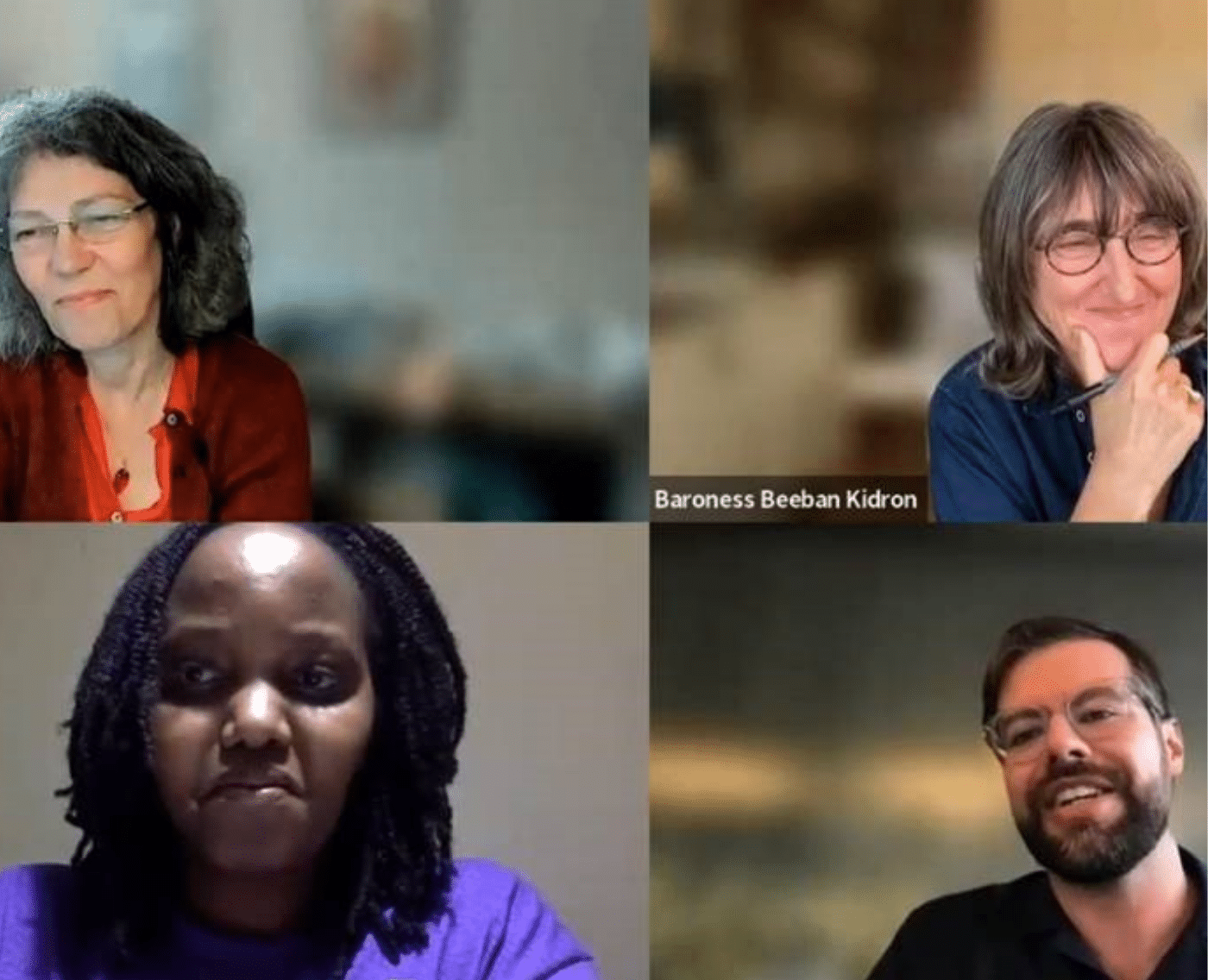New 5Rights-LSE Research Centre to Shape Digital Futures for Children
Building on the success of our Digital Futures Commission research project, 5Rights and the London School of Economics and Political Science (LSE) on 21 October launched a permanent joint research centre to support the implementation of children’s rights in the digital environment. The mandate of the Digital Futures for Children centre (DFC) is to deliver high-quality applied research on children’s experiences and emerging issues; elevate children’s voices; and facilitate dialogue between researchers around the globe and other key stakeholders for change.

Speaking at the launch, attended by nearly 400 participants from 49 countries, DFC Chair Baroness Beeban Kidron said: “The DFC is going to look at issues that will supercharge the normalisation of realising children’s rights online. Evidencing how current policy and regulation actually impacts on children’s lives will be its bread and butter, along with thinking through new strategies for equitable access and treatment for children, and establishing processes that look ahead and swim alongside technological changes to make sure that children’s voices are heard and their development needs are met.
”Professor Sonia Livingstone, DFC Director, emphasised the established value of the DFC approach which “brings together the research capacity of the LSE – a premier institution of social sciences – with the advocacy for systemic change in terms of policy, regulation and design spearheaded by 5Rights.
”Setting out the work programme for the first year, Professor Livingstone highlighted that the DFC’s first big commission is to map changes made by digital providers for children in response to regulation. “We’ll also examine the meaning, uses and challenges of the concept of ‘the best interests of the child’ in relation to the digital environment. And begin to map the evidence of the impact of General comment No. 25 to the Convention on the Rights of the Child.” The DFC will furthermore design a research repository based on robust criteria for evidence quality, to gather and categorise research in this area from around the world. Finally, Professor Livingstone pointed out that the work of the former Digital Futures Commission on play, education data, and child rights by design, would continue.
The launch was hosted by Kofi Amo-Agyei, a young campaigner from Gifted Young Generation, a 5Rights partner within our Youth Engagement Programme. Kofi emphasised the importance of the research work for children, and in particular how the DFC’s work consulting and engaging with children was paramount.
The priority of child consultation and taking a child-centric approach was highlighted during the panel discussion by Jennifer Kaberi, founder of Mtoto News in Kenya, who also stressed how the established global north tech business models are being exported to the global south, increasing inequality and exclusion.
Pedro Hartung, a child rights lawyer and Executive Director of the Alana Foundation, emphasised the importance of shared international standards and tools: “It’s about freedom and the autonomy [for children] not to be pushed or persuaded or [negatively] impacted by tech… How can we regulate that without international governance?”
The dynamic debate between panellists and the participants from around the world at the launch event signals a continued strong interest and need for this work and collaboration. The DFC welcomes contributions and expressions of interest from all stakeholders. Find out more and get involved here.
